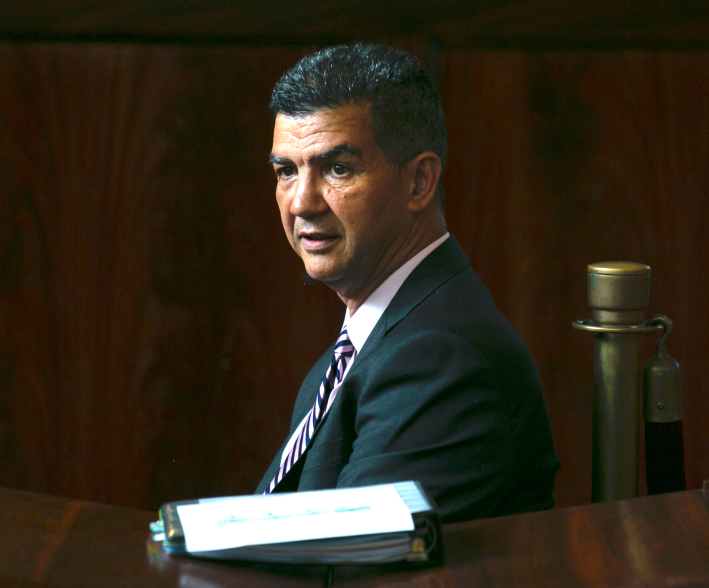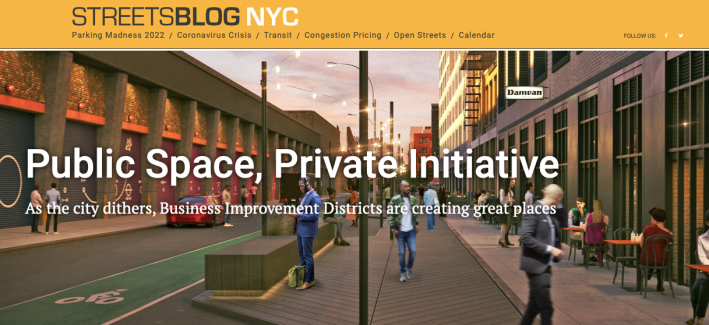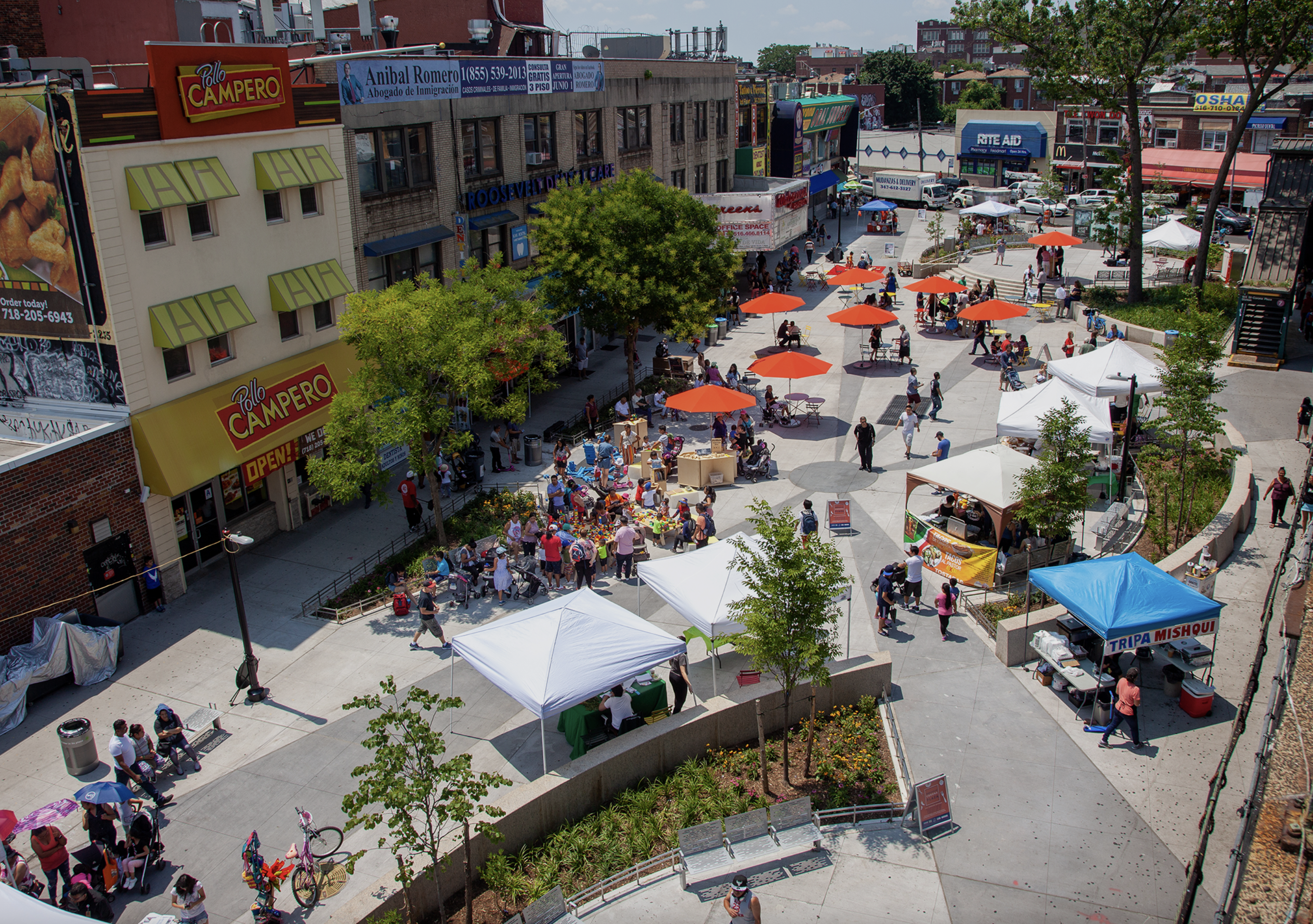We got this (at least we say we do).
The Adams administration pushed back yesterday on calls for the establishment of an Office of Public Space Management, telling the City Council that its current bureaucracies have public-realm issues under control, thank you very much.
Department of Transportation Commissioner Ydanis Rodriguez told a Council oversight hearing that such an office is a "great" idea, but "we do have a team at DOT that has been doing [public space management] and it's been doing a great job."
He added that Mayor Adams "truly believes that we have to reimagine the city's public space; this is the direction he's taking the city."

Rodriguez, who made his remarks in response to pointed questions from Transportation Committee Chair Selvena Brooks-Powers, vigorously defended the DOT's conduct of its Open Streets, Open Restaurants and Plaza programs, saying that it was working with other departments and outside partners, such as business improvement districts and community organizations, to promote equity in the city's approach to public space. He said that the new administration's interagency task force on the public realm — comprising the DOT, Planning, Sanitation, Parks, Small Business Services and others — meets "regularly" and is producing information that informs policy.
In particular, Rodriguez praised the DOT's Plaza Equity Program, which gives grants to plaza managers and helps with cleaning, graffiti removal, furniture-moving, power washing and other services. He said that he had pressed wealthy BIDs, such as the Times Square Alliance to "adopt" plazas in underserved neighborhood. The Open Streets program offers outside partners up to $20,000 annually to defray expenses, he noted. And he touted his credentials as a working-class, Latino who forefronted equity issues during his eight years as a Council member and Transportation chairman before Brooks-Powers.
The commissioner's remarks amounted to an official dismissal of a growing movement that has sought to prod the city into abandoning it siloed approach to managing the streets — and to keep that movement from simply becoming the playground of the wealthy. Brooks-Power had framed the hearing as a plea for public-space management, opening it with her own strong remarks and testimony from Jackson Chabot, the director of public space advocacy at Open Plans (a sister organization of Streetsblog).
Chabot demanded an Office of Public Space Management as "a framework that supports and empowers volunteers while fundamentally equitably providing the care, maintenance, and management of our streets and sidewalks" because, he said, present arrangements aren't working. Contrary to the DOT's protestations, its "community partners are exhausted, burnt out, and carrying the lion’s share of the responsibility to plan and execute events, manage Open Streets and Plazas, and keep people safe from traffic violence while doing so," he said.

Groups including the Municipal Arts Society, the Design Trust, the Urban Design Forum and others all have called for the city to reassess its agencies' focus with an eye toward getting a better handle on the care and maintenance of public space and reduce the reliance on volunteers. The DOT primarily concerns itself with keeping the road in good order in order to move traffic around the city, they argue.

Perhaps the most glaring evidence for the need for a different system is that many public plazas, such as Times and Herald squares, and smaller pedestrian zones and public spaces, are managed by a business-improvement districts, which fund their maintenance with a self-imposed tax on local landlords. The BIDs cover only 2 percent of the city, and are located mostly in wealthy districts — meaning that residential areas, especially those in poorer neighborhoods, do not get such vital attention to their public-space needs. An Office of Public Space Management could address these equity concerns.
Indeed, a report by Transportation Alternatives last year revealed that scores of DOT open streets were no longer functioning and the remaining ones were disproportionately in wealthy areas. Streetsblog reported this week that the same problem was occurring with the school streets program.
The advocates also argue that the DOT also can't claim competence in the dozens of professional disciplines involved in maintaining streets as "places" — including community planning, public safety and services, cleanliness and trash management, programming and event facilitation, street-furniture management, school-street management, vehicular management, planting facilitation, street design, maintenance (including street, sidewalk and lighting repair), vendor management, and parking management, among others.
"On the topic of public space management, our city is essentially not doing it right now," Sara Lind, Open Plans's policy director, testified. "I have seen too many public safety improvements, such as bollards at dangerous intersections or curb extensions, denied because the community could not provide a 'private maintenance partner.' Safety improvements to the city’s public space should not require a private partner. An Office of Public Space Management ... could solve this problem.
"Such an office could also address the current systemic discrimination against pedestrians that was created under former Mayor Bloomberg, when he privatized the maintenance of sidewalks," Lind continued. "Sidewalks are public space and the city should be responsible for clearing snow, fixing cracks and otherwise maintaining these spaces, just as they do for our streets, which are primarily dedicated to vehicles rather than pedestrians. This is an equity issue, an accessibility issue, and a safety issue."






